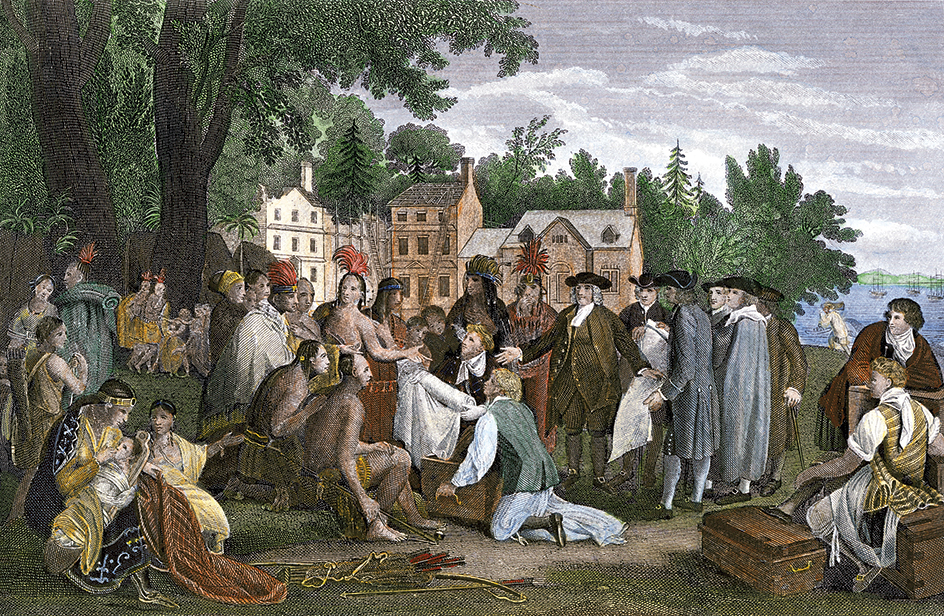Treaty is a formal agreement between two or more independent governments. It is usually a written document, but it may be a verbal statement agreed to by representatives of the countries. The history of treaty making goes back hundreds of years. As early as 3000 B.C., rulers of ancient countries signed treaties with neighboring kingdoms. Treaties served various purposes. Some treaties ended wars, and other treaties settled boundary disputes. But throughout world history, treaties have played an important part in relations between countries.
Today, only sovereign states are able to make treaties. A sovereign state is one that is free from outside control. For example, Britain is a sovereign state because its government is free to make its own decisions. But the British colony of Gibraltar is not free to make its own decisions. It is therefore not a sovereign state, and cannot make its own treaties.

A treaty is much like a contract between private individuals. In both cases, the signing parties promise to do or not do some act. However, there are important differences between treaties and contracts. A contract is not binding if one of the parties has forced the other party into agreement. But the use of force does not make a treaty void unless the force is used against the government representative who is working out the treaty terms. Unlike a private contract, a treaty does not go into effect until it is ratified. For example, a treaty between the United States and the United Kingdom is not official until both the United States Senate and the British Crown approve it.
There are several kinds of international agreements that have the force of treaties. One of these is called a convention. This is usually an agreement between states relating to a single topic, such as extradition. A concordat is an agreement between the pope and a sovereign state. An agreement between two monarchs on a private matter is not a treaty.
Kinds of treaties.
Treaties may be divided into several classes according to their purposes, although international law recognizes no formal distinctions among treaties. A single treaty may include clauses under several classes. Some of the classes are described below.
Political.
A peace treaty is one kind of political treaty. For example, the Treaty of Paris of 1783 ended the Revolutionary War in America. Others deal with alliances between countries and settle disputes. The Clayton-Bulwer Treaty in 1850 gave the United States and Britain equal protection rights in a future canal through Central America.
Commercial.
These treaties include agreements on tariffs, navigation, fisheries, and consular services.
Confederation.
Confederation treaties set up such international organizations as the Universal Postal Union.
Extradition.
These treaties deal with escaped criminals. For example, let us suppose that two countries have signed an extradition treaty. If a criminal from one country flees to the other for safety, the criminal must be returned, or extradited, to stand trial for the crime.
Civil justice.
These treaties protect a country’s trademarks, copyrights, and patents in foreign countries. Some civil-justice treaties deal with the rights of aliens.
Negotiation.
In monarchies, the king or queen and his or her legal agents have the power to make treaties and are represented at negotiations by a diplomatic agent, or envoy. For example, in Britain neither house of Parliament has any power over treaties. That power is reserved for the British Crown or Cabinet.
In republics, the chief executive usually has treaty-making power. This power is often subject to restrictions. In the United States, the President may enter into a treaty with “the advice and consent” of the Senate. Two-thirds of the senators present must agree to the treaty terms. Separate U.S. states may not make treaty agreements. The Department of State carries on treaty negotiations. Sometimes the President enters into an executive agreement with a foreign country. This kind of agreement has the force of a treaty in international law, but it does not require Senate approval.
Language used.
Until the 1700’s, all treaties were written in Latin. Then French became the official language. Today, most treaties are written in the various languages of the treaty-making nations.
Enforcement of treaties.
In ancient times, a country had to “back up,” or guarantee, its treaty promises. One way of doing this was to exchange hostages. Each country that signed the treaty would send one or more important people to the other countries that had agreed to the treaty. Hostages were held as prisoners. They could be killed if the terms of the treaty were not carried out.
The hostage system has not been used for many years. Today, most countries rely on the good faith of other countries, and on international public opinion. In many countries, including the United States, treaties have the force of law. As a result, treaty provisions become legal requirements for officials. At the same time, however, nations may repeal or abolish these treaties, as they do their own laws. But such actions are generally subject to certain international consequences.
Termination.
Treaties may be ended in many ways. They may end upon the agreement of all parties concerned. Sometimes a treaty clause permits either party to cancel the agreement after due notice. The failure of one country to carry out its part of the agreement may cause the other country or countries to refuse to observe the treaty terms. A treaty becomes void when the physical conditions of the agreement become impossible to fulfill. War nullifies many treaties.
Ecclesiastical treaties
deal with the religious rights of people who are living in a foreign country. Among Western nations, people may worship as freely in foreign lands as in their homelands. In several non-Christian parts of the world, Christian missionaries are permitted by treaty to teach the beliefs of Christianity. In some countries, ecclesiastical treaties permit foreign residents to practice their own religions but forbid them to try to convert others.
